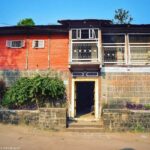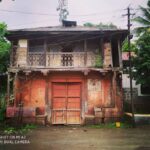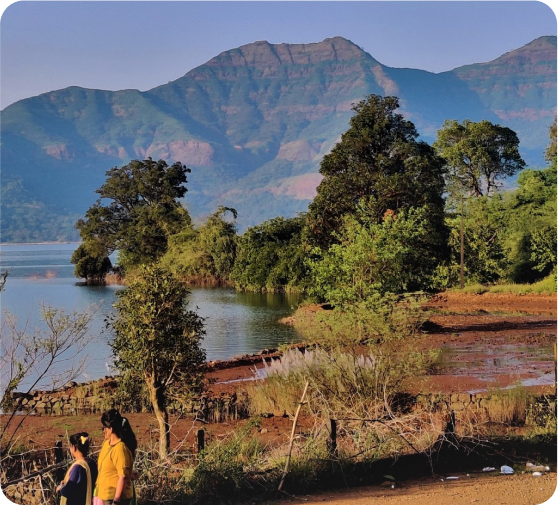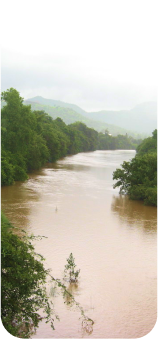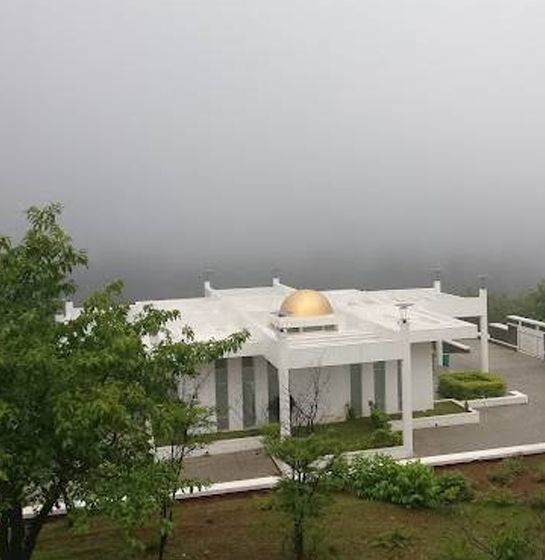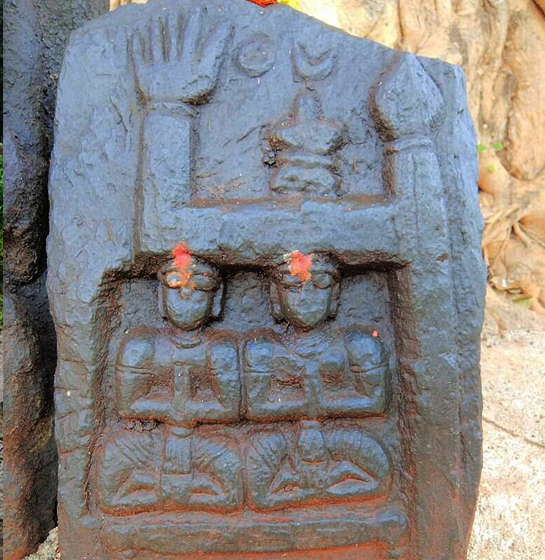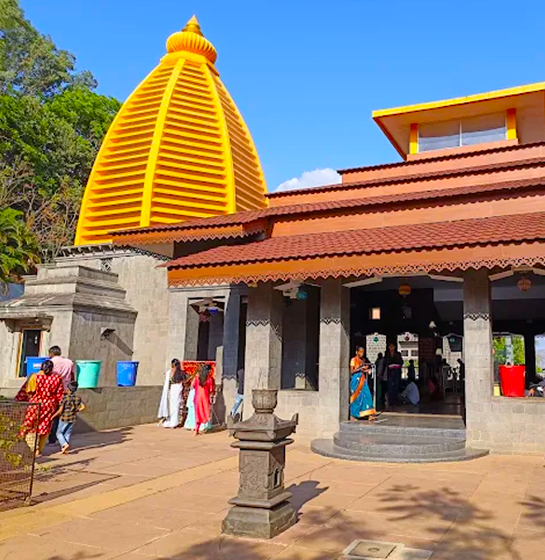Honaji Navji Balkavde Wada
The Gems of Mulshi – The Legacy of the Balakwade Family
Greetings, friends! Today, we are going to visit the ancestral home of Honaji Navji Balakwade, son of Sardar Navji Balakwade, located in Darwali village, just 2 kilometers from Paudgaon, along the Pune-Kolad Road in Mulshi. The remains of this historic wada still stand tall, narrating the valor and heritage of the Balakwade family.
Situated in the heart of the village, the wada stands on an elevation of 30 to 40 feet and spans 6 acres. The grand entrance on the western side of the wada proudly displays its glory, standing strong on solid foundations. The height of the entrance is between 20 and 22 feet, and the black stone construction has endured for more than 250 years. The beautiful lotus carvings on the entrance and the Ganesh plaque on the door are still clearly visible. This main door, facing the Mula River, once served as the gateway to the village of Darwali, offering a commanding view of the surroundings. On either side of the door, remnants of stone fortifications still stand, along with stone shrines that mark the positions of the guards. After passing through the entrance, the structure opens to the main courtyard, where the grandeur of the partially ruined Chopsi Wada is evident.
The main entrance of the wada faces east, with its front towards Pune, earning it the name Pune Darwaja. This wada was once grand, with a total area of 180 kanis (units of land), featuring stone walls and defenses on both sides. The dimensions of the wada were 150×150 feet, and although much of it has fallen into disrepair, portions of its walls are still visible. The wada was built on strong 5.5-foot foundations, showcasing the wealth and architectural finesse of its time.
In the center of the wada, there are signs of a water fountain, and as this area receives heavy rainfall, an elaborate drainage system was constructed to carry the water away. To the south of the wada, there was another entrance. A little further from the wada, a stone water supply system and a well were built to provide water to the area. Upon reaching the main courtyard, we can also find the tomb of Subedar Honaji Balakwade, the creator of the Kalbhairavnath and Vitthal temples, which remain intact. Several warrior statues stand in front of the temples, serving as a testament to the bravery of the Balakwade family.
History of the Wada:
During the reign of Chhatrapati Sambhaji Maharaj, Sardar Navji Lakhamaji Balakwade rose to prominence. Navji Balakwade was in the infantry of Shankarji Narayan and held the rank of “Saptasahastri.” He played a pivotal role in the capture of Sinhagad and, in return, was granted the Sawargaon area in the Kolwan valley. On June 30, 1693, Navji Balakwade, like the legendary Tanaji Malusare, conquered the fort using ropes and ladders, and the saffron flag was raised at Sinhagad. Later, he also brought forts like Korigad, Lohgad, and Sudhagad under Swarajya. For his valor, he was awarded the villages of Darwali and Mulkhed as an inheritance by Chhatrapati Rajaram Maharaj.
Subsequent generations continued to build the family legacy. His son, Subedar Honaji Balakwade, Subedar Yesaji, and Killedar Pilaji were active in the wada and performed great deeds. Honaji fought alongside Peshwa Baji Rao I and his brother Chimaji Appa in campaigns against the Siddis of Janjira, as well as in the Gujarat and Surat campaigns, gaining territories like the Ghandevi region. He also participated in the successful conquest of Vasai. The Balakwade family’s contributions to the Maratha Empire are celebrated to this day.
Today, we can still find the memorial of Sardar Navji Lakhamaji Balakwade proudly standing in front of the wada in Darwali. The Balakwade family and Darwali village have become immortalized in the annals of history. In the beautiful region of Mulshi, we are fortunate to explore the history of the Balakwade Sardars, as the renowned historian Pandurangji Balakwade, a son of this village, continues to preserve the family’s legacy.
Thank you,
Akash Marane
Team Mulshi
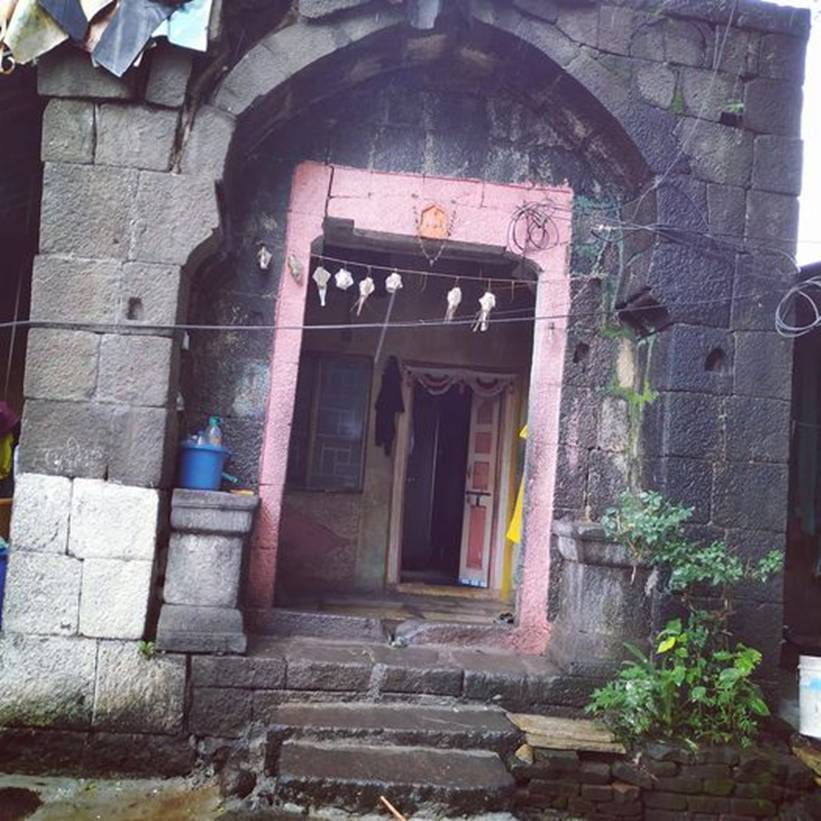

Honaji Navji Balkavde Wada Details
Pune to Honaji Navaji Balkawde Wada Darawali
Duration: 1 – 1.30 hours
Difficulty Level: Medium

What to Expect
A mix of dense forest and open plateau.
– Various fruit-bearing trees and lush vegetation.
– Historical and cultural sites along the trail

Best Time to Visit
Winter (October to February): Ideal for trekking due to pleasant weather.
Monsoon (June to September): Offers lush greenery and waterfalls but requires extra caution due to wet conditions.
Summer (March to May): Can be quite hot; start hikes early to avoid the heat.

How to reach there
Mulshi is accessible by road from Pune and Mumbai. Public transportation options and private vehicles are available for reaching the trailheads.

Tips for Hikers
Carry at least 3 liters of water and some snacks.
– Consider hiring a local guide for a more informative experience.
– Start early to avoid the midday heat.
admin
Published: October 9, 2024
